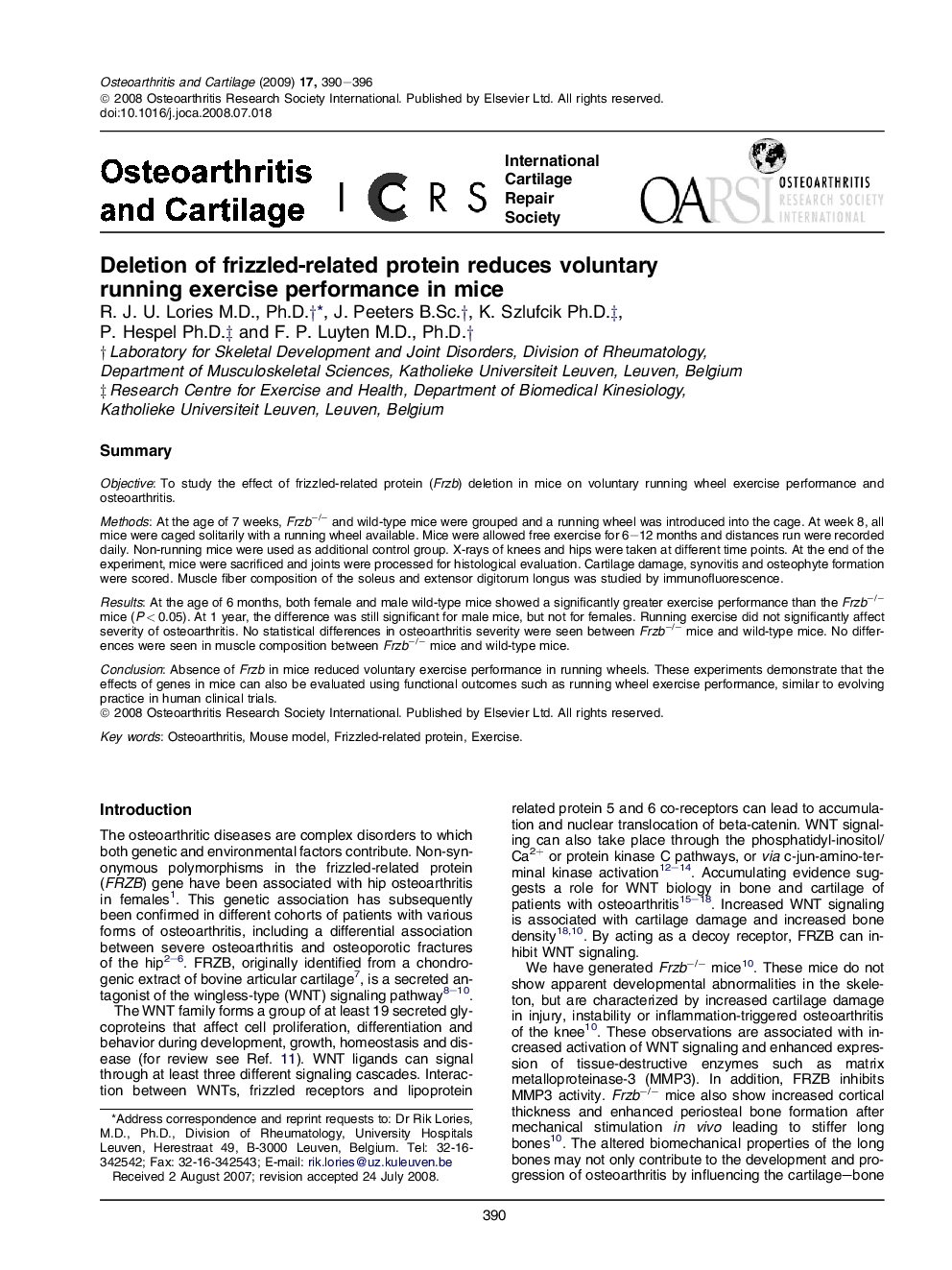| Article ID | Journal | Published Year | Pages | File Type |
|---|---|---|---|---|
| 3380738 | Osteoarthritis and Cartilage | 2009 | 7 Pages |
SummaryObjectiveTo study the effect of frizzled-related protein (Frzb) deletion in mice on voluntary running wheel exercise performance and osteoarthritis.MethodsAt the age of 7 weeks, Frzb−/− and wild-type mice were grouped and a running wheel was introduced into the cage. At week 8, all mice were caged solitarily with a running wheel available. Mice were allowed free exercise for 6–12 months and distances run were recorded daily. Non-running mice were used as additional control group. X-rays of knees and hips were taken at different time points. At the end of the experiment, mice were sacrificed and joints were processed for histological evaluation. Cartilage damage, synovitis and osteophyte formation were scored. Muscle fiber composition of the soleus and extensor digitorum longus was studied by immunofluorescence.ResultsAt the age of 6 months, both female and male wild-type mice showed a significantly greater exercise performance than the Frzb−/− mice (P < 0.05). At 1 year, the difference was still significant for male mice, but not for females. Running exercise did not significantly affect severity of osteoarthritis. No statistical differences in osteoarthritis severity were seen between Frzb−/− mice and wild-type mice. No differences were seen in muscle composition between Frzb−/− mice and wild-type mice.ConclusionAbsence of Frzb in mice reduced voluntary exercise performance in running wheels. These experiments demonstrate that the effects of genes in mice can also be evaluated using functional outcomes such as running wheel exercise performance, similar to evolving practice in human clinical trials.
